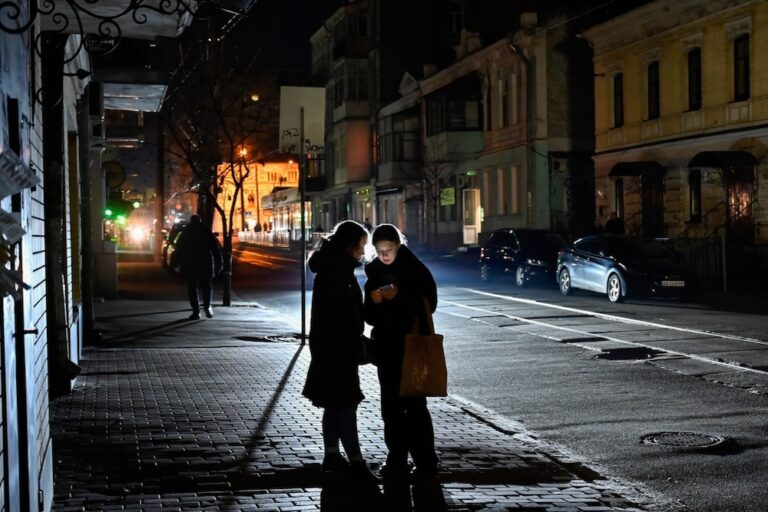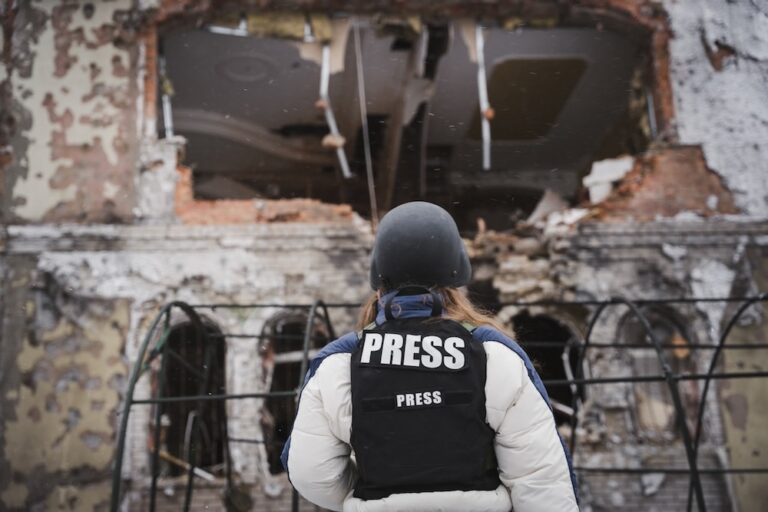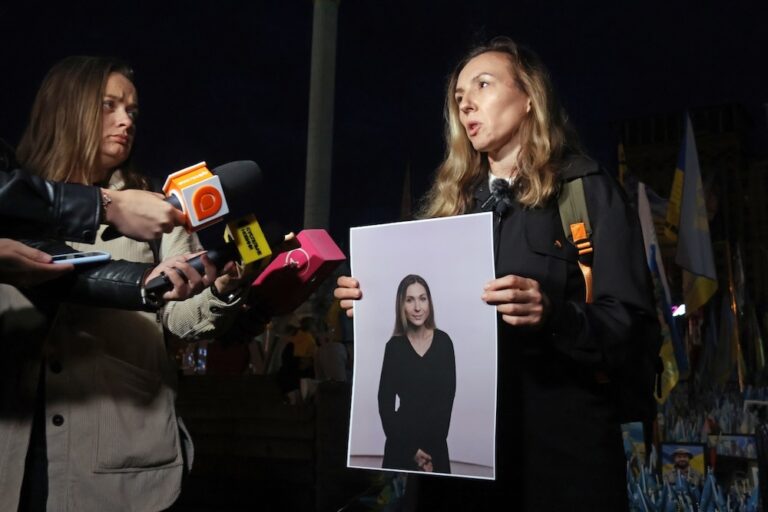(ARTICLE 19/IFEX) – In a letter to Ukrainian President Leonid Kuchma, ARTICLE 19 expressed its concern at the news of the circumstances surrounding the alleged unfair treatment of journalist Volodymyr Boyko and the weekly “Ostrov”, and the possible involvement of Ukrainian General Prosecutor Gennadij Vasylyev. According to ARTICLE 19’s information, in November 2003, when Vasylyev […]
(ARTICLE 19/IFEX) – In a letter to Ukrainian President Leonid Kuchma, ARTICLE 19 expressed its concern at the news of the circumstances surrounding the alleged unfair treatment of journalist Volodymyr Boyko and the weekly “Ostrov”, and the possible involvement of Ukrainian General Prosecutor Gennadij Vasylyev.
According to ARTICLE 19’s information, in November 2003, when Vasylyev was vice speaker of the Parliament and a candidate for the position of general prosecutor, he was asked to clarify his alleged involvement in corruption and abuse of power in Donetsk, where he had been prosecutor between 1992 and 1996. Some such allegations were made in the article “In the Land of Fearless Prosecutors”, published by Boyko in the weekly “Ostrov”. In the parliamentary session during which Vasylyev was appointed general prosecutor, he reportedly noted that a legal case had been initiated as a result of the article and that he would do everything in his power to see it brought forward.
Subsequently, at a press conference held on 18 December, Vasylyev stated publicly that a court decision against Boyko had already been taken (1). The journalist, who was in the audience, replied that he had not heard of the decision and requested the relevant documents from Vasylyev. The general prosecutor refused to get into the specifics of the case during the press conference and instead assured Boyko that the court documents would be provided to him following the event. This, however, did not happen.
On the same day, the flat in Donetsk where Boyko’s 75-year-old mother lives and which belongs to Boyko’s daughter was reportedly searched by state officials from the General Prosecutor’s Office. They also referred to the same court decision to justify the search but did not provide Boyko’s mother with any supporting documents. Instead they took the flat’s ownership documents from her. As Boyko was then in Kyiv, “Ostrov”‘s editor made enquiries and reportedly learned through contacts that Vasylyev had allegedly submitted a request to the District Court judge to fabricate a court decision against Boyko. Furthermore, the newspaper’s bank account was reportedly frozen (as is the procedure when a court case is initiated against a newspaper), yet the newspaper also received no information on the case’s details. Neither Boyko nor the agency Fortuna, which publishes “Ostrov”, were summoned to court (2). In an attempt to shed light on the case, on 21 December “Ostrov” issued an appeal requesting the elusive court documents.
The tension between Vasylyev and Boyko is not new. Boyko has published a series of articles on Vasylyev’s alleged corruption. At the end of June 2002, the journalist was arrested by the tax police for alleged tax evasion and detained for a week. Boyko linked his arrest to his critical articles on the work of the Donetsk region tax police. In February 2003, the journalist sued the Donetsk Prosecutor’s Office and requested compensation for moral damages for the detention. The case was opened and closed a number of times. Since this time it has even been difficult to ascertain whether or not the case was pending. The Donetsk Prosecutor’s Office refused to provide courts with the relevant documentation, causing the case to be suspended for lack of evidence.
ARTICLE 19 believes that the above case raises some questions concerning Ukraine’s responsibilities under international law and compliance with international standards of freedom of expression.
First, although ARTICLE 19 is not in a position to judge whether the statements made by Boyko were defamatory or not, ARTICLE 19 believes that there have been serious violations of the proper procedures to redress potential damages caused to one’s reputation.
ARTICLE 19 recommends that officials use their public positions to rebut defamatory allegations rather than initiating legal action. If, in exceptional circumstances, public officials claiming to have been defamed wish to initiate legal action, this should be done according to the established legal procedures. In these cases, courts should take into consideration that, according to the European Court of Human Rights’ rulings, public figures should tolerate a higher degree of criticism than ordinary citizens (3). It is of concern that a senior public official, who should be one of Ukraine’s primary guarantors of justice, might be operating in disregard of some of the most basic principles of justice.
Second, measures such as the search of Boyko’s mother’s flat and the freezing of “Ostrov”‘s account are inherently problematic. Both are disproportionate measures in response to a potentially defamatory statement, and the freezing of an account, in particular, denotes a pre-judgement of culpability, which is inappropriate before a court decision has been reached. In addition, when media outlets’ bank accounts are frozen, the outlets face substantial loss of earnings as they are forced to suspend operations, the effect of which can ultimately be crippling and irreversible.
Third, by not being informed about a court case possibly brought against them, Boyko and “Ostrov” have clearly been deprived of the most basic information about the allegations against them. The freezing of the account means that the process initiated by the authorities is already adversely affecting Boyko and the newspaper, and therefore has gone past the investigation stage, for which absence of notification is a breach of Ukrainian and international legal norms. The fact that Boyko and the weekly are unable to even establish whether legal action has been taken against them, and whether they have been found guilty of an offence, is depriving them of their right to proper judicial process and to prepare an adequate defence. Previously, lack of transparency had already been an element in Boyko’s struggle to have his detention in June 2002 reviewed and to claim compensation.
Based on the information ARTICLE 19 has, it cannot be concluded that the events constitute a case of harassment against Boyko and “Ostrov”. In particular, the search of Boyko’s mother’s flat seems to be designed more to harass rather than to collect evidence for the case. Such forms of harassment can seriously undermine the media’s ability to fulfil its role in a democratic society: to disseminate a variety of opinions and views and act as a government watchdog. Instead they lead to an atmosphere of repression in which self-censorship thrives.
1. Although on this occasion he noted that the defamation suit against Boyko had been initiated by a third party, rather than by himself.
2. Reportedly Boyko received one summons, but when he went to court he found only an empty courtroom.
3. For example, see Lingens vs. Austria, Judgment of 8 July 1986, Application No. 9815/82 (European Court of Human Rights).


